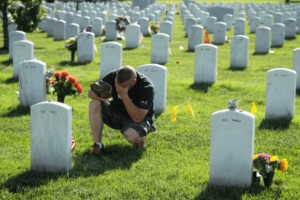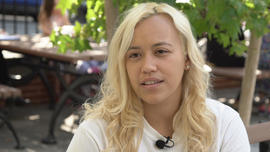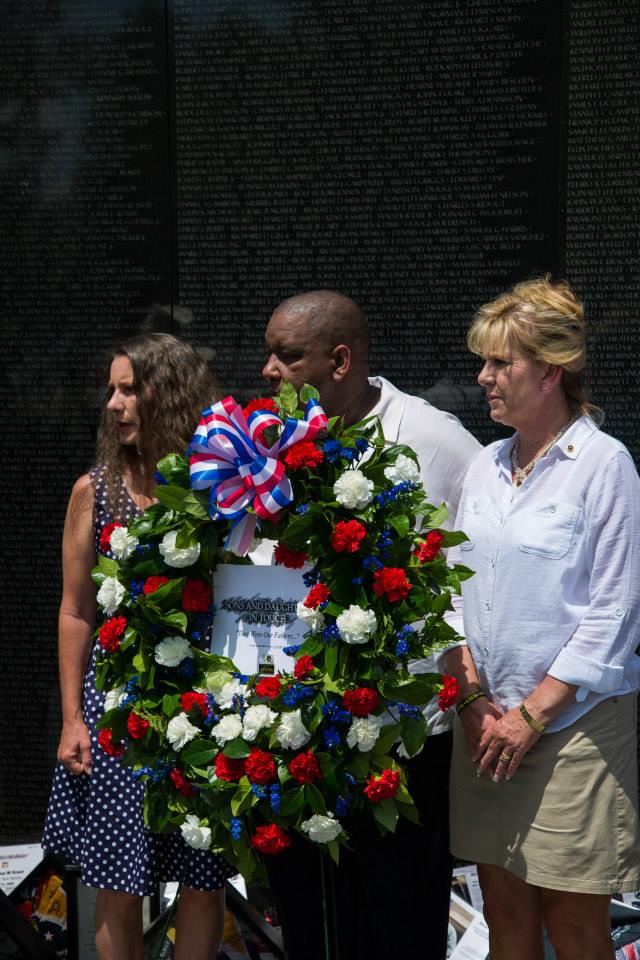Ever since Memorial Day commemorations across the United States have honored men and women lost in battle — and those who are still missing — while wearing the uniforms of the United States military. While the deceased cannot hear our thanks, their living legacies are here among us to accept that gratitude, and it is appropriate that we honor them as well.
Imagine a Memorial Day ceremony at which many of these families sit in reflection. They are poignant connections to the pages of American history.
As you acknowledge them, take a close look at who they are and the stories they tell about becoming the families of America’s fallen heroes.
As touchstones to a war fought 100 years ago, a few surviving sons and daughters from World War I are still alive today.
It would be an honor to listen as one of these centenarian children says, “My dad was one of the 53,402 doughboys lost in WWI.”
Next to them may be the 70- and 80-year-old children and siblings of some of the 405,399 Americans lost in World War II. They still recall receiving a telegram that delivered the news of the deaths of their fathers and brothers on the sands of Iwo Jima, in the Battle of the Bulge, or on the shores of Normandy.
Intermingled in the crowd may be the elderly wives, children, and siblings of 36,000 American casualties from the Korean War. It may be called “The Forgotten War,” but these families always remember their loved ones.
Nearby are scores of mothers, fathers, wives, sons, and daughters, and brothers and sisters of the 58,318 Americans lost in the Vietnam War.
Grenada, Panama, the Marine barracks in Lebanon, and the 1991 Persian Gulf War left behind more surviving family members. Though the battles were brief, the families’ grief lasts forever.
The 21st century was just an infant when terror thrust America into more than 15 years of conflict. Since 9/11, the global war on terror has brought heartache to nearly 7,000 families. Their pain is still raw from devastating losses in Afghanistan, Iraq and other faraway places where evil lurks.
These surviving families mourn like the Gold Star families who carried the title before them, taking solace in a tradition of resilience — and shining a light on the needs of all of America’s surviving families.
Being a member of a surviving family is not a distinction anyone chooses. Joining the club requires the sacrifice of a precious life. We would all prefer never to have heard the 24 notes of “Taps” at a military funeral, never to have experienced the pain that is part of our lifetime membership.
But we all have.
On this Memorial Day, as Americans rise to their feet in honor of our fallen heroes, remember their families who have also sacrificed. For them, every day is Memorial Day as they remember their beloved heroes who fell for freedom.
— Tony Cordero is the founder of Sons and Daughters in Touch, which unites Gold Star children from the Vietnam War and serves as a bridge to older and younger generations of Gold Star families. His father, Air Force Maj. Bill Cordero, was lost in the Vietnam War. His mother is a Gold Star sister, having lost her brother in an Army Air Corps crash in World War II. His late stepfather was a Gold Star sibling who lost his older brother in New Guinea in the same war.
— Bonnie Carroll is a Presidential Medal of Freedom recipient, a military veteran, and the president and founder of the Tragedy Assistance Program for Survivors (TAPS), which offers compassionate care to all those grieving the loss of a military loved one. She founded the organization after the death of her husband, Brig. Gen. Tom Carroll, in an Army C-12 plane crash in 1992.
— The opinions expressed in this op-ed are those of the author and do not necessarily reflect the views of Military.com. If you would like to submit your own commentary, please send your article to opinions@military.com for consideration.
— Source: www.military.com





